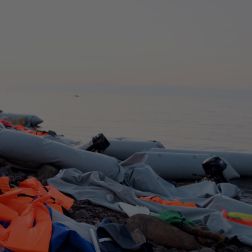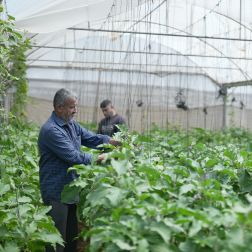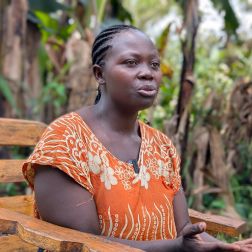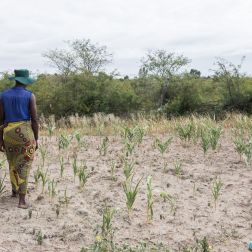- 5 mins read time
- Published: 4th September 2020
BEIRUT: One month since the blast and thousands can’t afford a front door
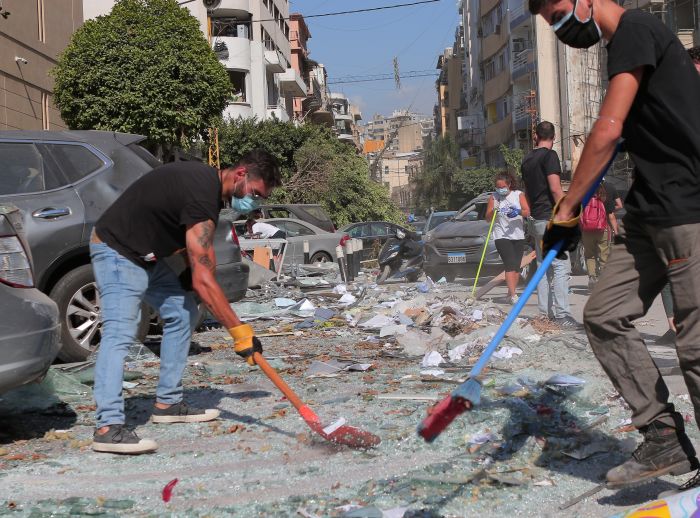
By Sahar Elbachir, Senior Media and Communications Officer, and Bachir Ayoub, Policy Lead - Oxfam in Lebanon
One month since the massive explosion in Beirut, tens of thousands of vulnerable people are unable to rebuild their homes — with a front door costing two months’ minimum-wage salary.
Longstanding inequality, massive inflation and COVID-19 have compounded this humanitarian disaster for tens of thousands, making it almost impossible for them to recover.
Huge inflation has meant the cost of basic materials needed to rebuild homes and businesses is out of reach for thousands of people who were already struggling to get by before the explosion sent shockwaves through the city. While the minimum wage is just under €380 a month, the cost of replacing one window is now nearly €420 and a door is up to €845.
The blast came at a time when thousands of people were already on the brink. An estimated 50 percent of the population was living under the poverty line, the Lira’s value had dropped 80 percent since October, migrant workers were being abandoned and forced out on the streets, cash was almost impossible to access, and restrictive measures to contain the pandemic prevented casual workers from getting to their jobs.
Following the blast, approximately 70,000 additional workers are now jobless and half of all wholesale, retail and hospitality establishments near the blast site have been destroyed.
In the most affected areas, the majority of people are low- and middle-income workers who earn the minimum wage or less. Most of them have lost their jobs in the port or businesses in the devastated areas and many people are struggling to put food on the table.
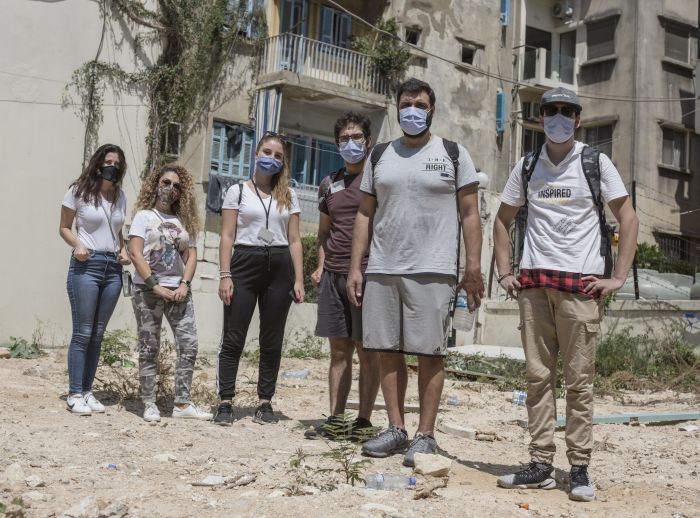
Oxfam’s Response
Oxfam is working with Lebanese organisations to ensure that Beirut’s most marginalised people are not left behind and instead have the support they need to recover from the explosion.
Oxfam’s joint response with partners will focus on supporting local leadership, and will prioritise reaching people with disabilities, the elderly, women and girls, migrant workers, refugees (Lebanon hosts the largest number of refugees per capita in the world – one out of every four people) and the LGBTQ+ community.
Oxfam’s partner-led response is providing over 9,000 people with support including distribution of food parcels and the provision of emergency and temporary cash assistance, legal assistance and consultation, psycho-social support and medication, and help to repair and rebuild their homes and businesses.
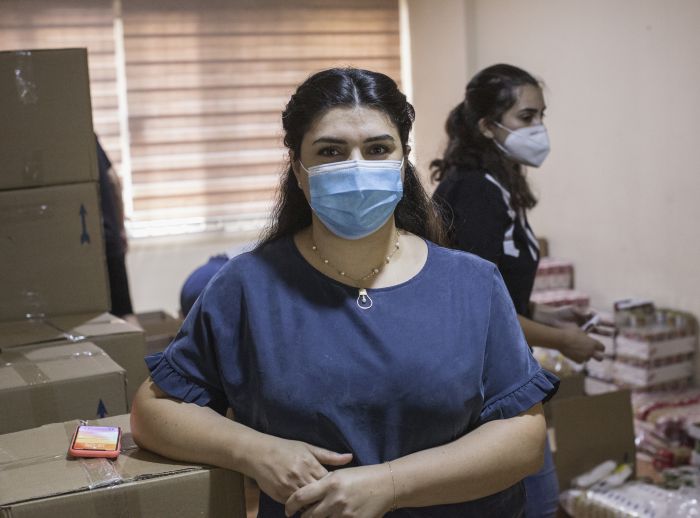
Trauma
But there is still so much that needs to be done for Beirut to begin to recover. Celine El Kik, a social worker from Oxfam partner KAFA, says the mental scars of the blast will linger long after the physical damage has been repaired.
“The port explosion affected all of us, but especially women who were already vulnerable. We're providing social and legal support, as well as cash assistance for people who lost their jobs or their houses.”
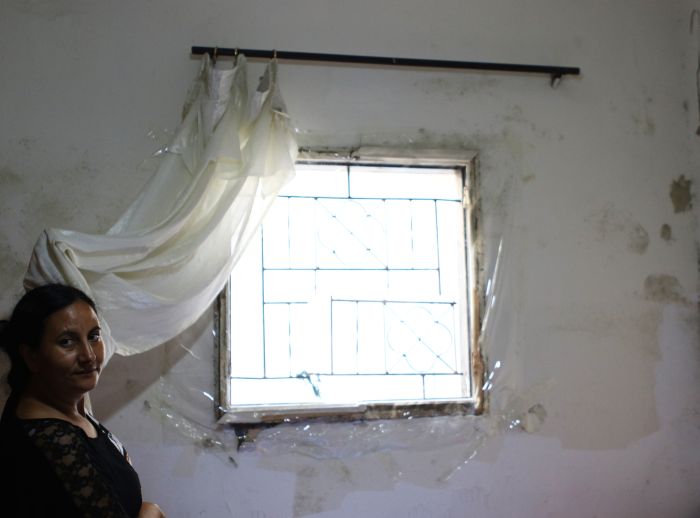
Hanaa, her two daughters and her son, have been living in her small house in Karantina – one of the neighborhoods closest to the port – for decades. The family was inside their house when the blast went off.
“We were standing in the house,” Hanaa explains from her home. “At first they said it was fireworks. The first explosion went off, and the kids started screaming. I told them it was only the fireworks factory. And then the huge blast went off, it threw my kids and me across the room.”
Hanaa’s house was cracked, pieces of actual concrete fell off, and the windows exploded, sending glass raining across the room.
“Everything was full of smoke, it was indescribable,” Hanaa recounts.
Dina, Hanaa’s second daughter, was mildly injured during the explosion. Although she has almost completely recovered, the invisible scars the blast left aren’t about to disappear. For Hanaa’s youngest son, every loud noise is a reminder of the blast.
“Until now, he doesn’t sleep at night, he asks me to talk to him all throughout the night,” says Hanaa.
Although her family is safe and suffered only minor injuries, Hanaa still fears that her home is unsafe – that it now barely stands on its own.
“We still are afraid that the wall might collapse on us.”
For now, the family uses plastic to cover the windows or pieces of wood to create a makeshift door, but they fear that once winter, with its cold weather and harsh rains sets in, they might not even have a house anymore.
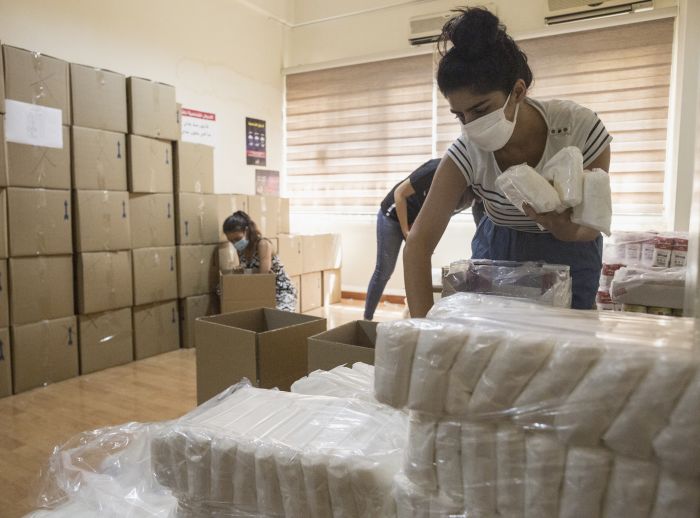
Oxfam is calling for fair and just distribution of aid to provide critical support to vulnerable communities and people who will be unable to rebuild their lives without targeted and transparent aid.
Our worry is that the growing inequality and suffering we were already seeing in some of Lebanon’s most vulnerable communities – like refugees and migrant workers, the elderly and LGBTQ+ community – will only get worse, and they will fall even farther behind.
These communities need urgent assistance to recover from this disaster and rebuild their lives.
